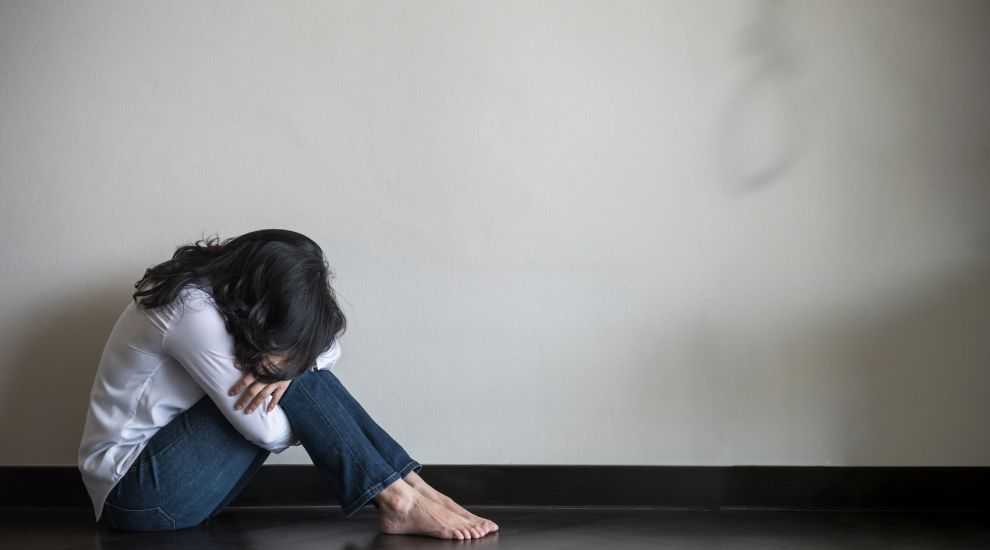


A local mental health charity has shared advice on how to cope with difficult thoughts and reach out for help, after new stats revealed an increase in serious cases of self-harming among islanders under the age of 20.
Data obtained following a request under the Freedom of Information Law revealed that the number of young people seeking emergency treatment due to self-harm had more than doubled from 43 cases in 2019 to 95 in 2021.
It also revealed that the Emergency Department had dealt with 46 cases of self-harm in the first six months of this year involving individuals under the age of 20. In 2022 and 2023, 77 and 71 cases of individuals under the age of 20 were dealt with at the hospital.
Mind Jersey’s Child and Young Persons Service shared advice on how to cope with self-harm and urged young people to reach out for support....
Self-harm can affect young people in lots of different ways. It is a behaviour that is used to express or relieve feelings of distress.
Self-harm can be hard to talk about because it can be linked to emotions we don't know how to voice. But it doesn't have to be that way.
Remember, self-harm can only bring temporary relief. It does not help or stop the original problem and it can also put your life in danger. But you can be helped and supported to find new ways of coping.
It is important to share with someone you trust so that they can support you with finding support and help. Try to tell someone you trust as soon as you feel ready to reach out.
Some people may not understand straight away. This could be because they don't understand self-harm, or they're upset and in shock.
Remember, this is not your fault, and there is always someone there to support you. This could be a parent, carer, guardian, friend, partner or a professional like a teacher, doctor or counsellor.
Before you talk to someone, you might want to think about:
Writing down how you feel – you could do this when you're feeling calm, or just before or after you've self-harmed.
Practising what you want to say, or speaking confidentially to Childline or The Mix first.
Who you want to talk to – you could think about who will be kind and supportive.
How you'd feel most comfortable telling them – this could be sitting down face-to-face, doing something together, talking over the phone or giving them a letter.
If you have low self-esteem, this can sometimes make you feel like you're a 'burden' to others. This isn't true but can make it feel harder to reach out.
Once you feel ready to talk, you could think about how to start the conversation – there's no right or wrong way to do this, but if you need some ideas, you could try saying:
"This is difficult for me to talk about, but I need to tell you something."
"I need your support with something, can we talk?"
"I've been hurting myself because I feel..."
Ask someone you trust to help you explain – or to tell someone for you, if they feel able to.
Explain what you'd like from them – are you looking for someone to listen or to help you find support?
Ask them to let you know if they need to tell someone else – so you know what to expect.
Plan to do something kind for yourself afterwards – telling someone may not be easy, but it's something you should feel proud of.
We're here to help you understand self-harm, and explain what help and support is available to you.
Here is a helpful website to look at to support you with coping with self-harm behaviours: Tips for coping with self-harm – for 11-18 year olds.
Support for parents and carers is also available and this is a helpful resource: Coping with self-harm: a guide for parents & carers.
If you work with young people and would like more information and advice, see this resource: Supporting a young person struggling with self-harm.
Anyone affected by the issues raised in this article can also seek help from other services...
Jersey Talking Therapies: JTT@health.gov.je or 01534 445002
Mind Jersey: admin@mindjersey.org or 07829 933 929
Listening Lounge: counselling@listeninglounge.care or 01534 866793
Mental health crisis support: If you experience a mental-health crisis, you can call 01534 445290 at any time.
Children and Families Hub: childrenandfamilieshub@gov.je or 01534 519000
Kooth: Kooth gives people between 13 and 25 years old free, anonymous online counselling and support.
The Mix: The Mix is a UK-based charity for under 25s that offers free support via, text or social media.
Childline: Childline is a British counselling service for children and young people aged up to 18. Call on 0800 1111.
Fears Jersey youth facing "mental health epidemic" as self-harm surges
Jersey's young people feel lonelier than any other age group